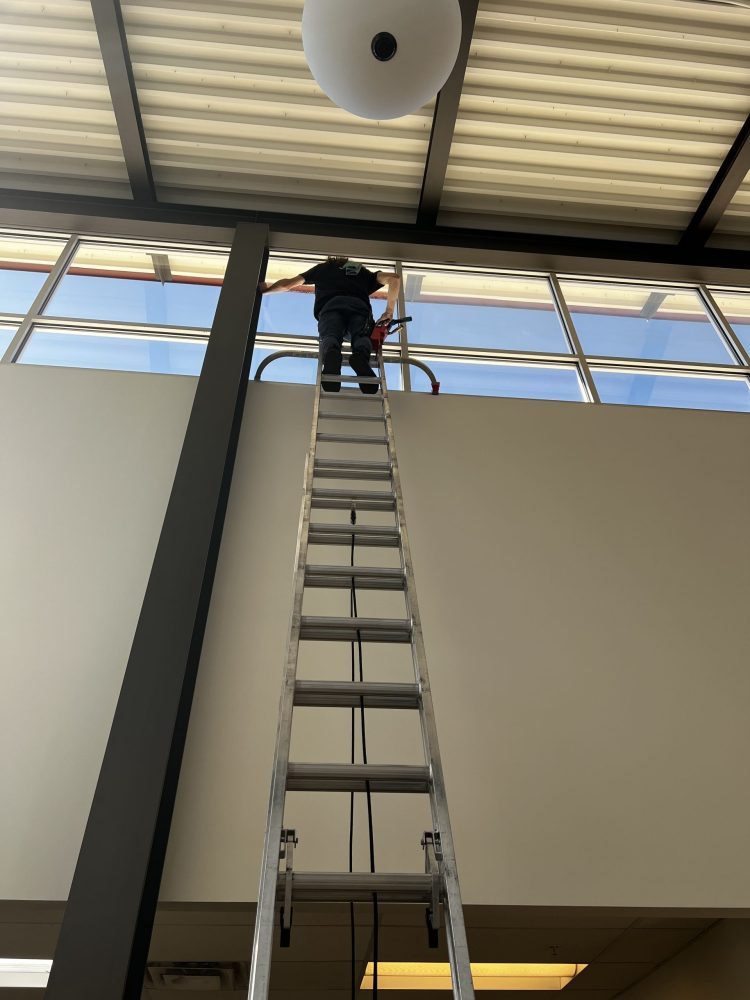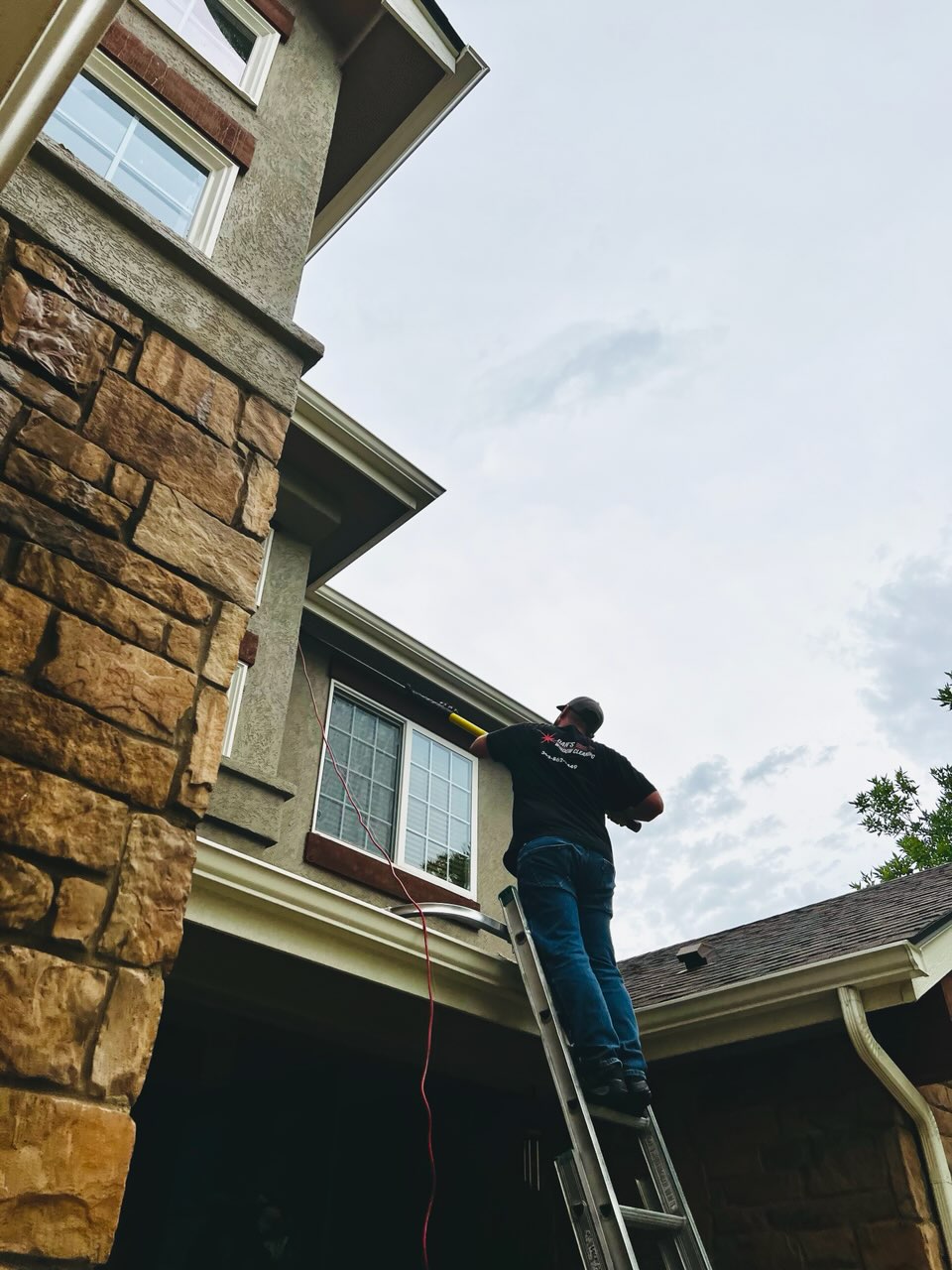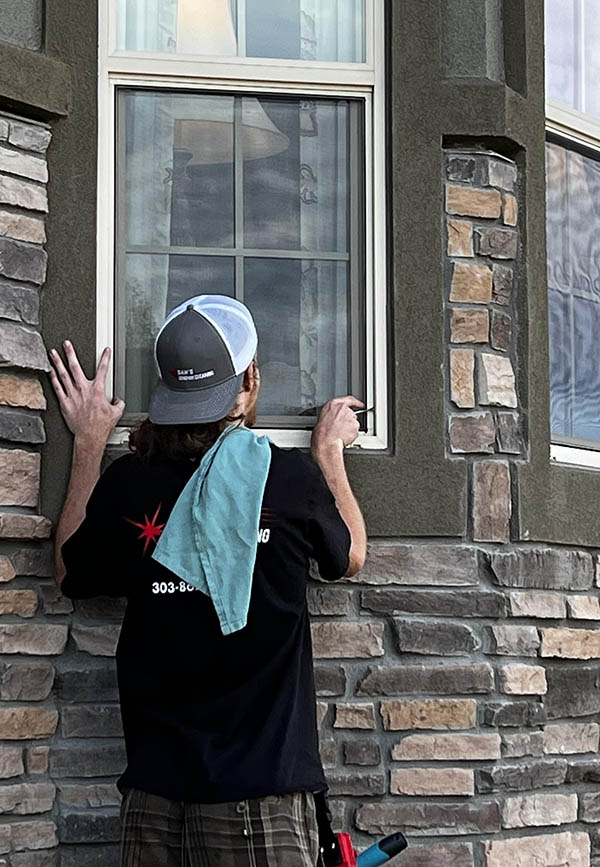Protect Your Home from Insects with Quality Screen Repairs
When your goal is to keep your home comfortable, inviting, and free from unwanted pests, high-quality window screens are your best ally. They provide a first line of defense, allowing fresh air to circulate while stopping insects in their tracks. But, like any hardworking system in your home, screens are not immune to wear and tear.
Addressing screen damage promptly through repairs is more than just a necessary fix; it’s a proactive measure to protect both your living space and your peace of mind. Whether you’re tackling minor repairs on your own or turning to professionals like Dan’s Window Cleaning, ensuring your screens remain in top shape is essential. This post will guide you through everything you need to know about screen repairs, from spotting damage to safeguarding their longevity.
Understanding the Role of Window Screens
Window screens do more than just block bugs. They serve three primary purposes that contribute to your home’s comfort, health, and efficiency.
Ventilation Without Compromise
Window screens allow you to enjoy fresh air without worrying about flies, mosquitoes, or other pests sneaking in. Open windows and doors create a natural airflow that cools your home and reduces the need for air conditioning, but screens make sure that this comfort doesn’t come at the cost of an insect invasion.
Light Control and Safety
Modern window screens can filter sunlight, reducing glare and even blocking harmful UV rays, which helps protect your furniture, flooring, and skin. Screens also provide an added layer of safety, keeping children and pets from accidentally falling out of open windows.
Boosting Energy Efficiency
By letting in breezes on cool days and keeping insects out, screens support your efforts to reduce energy use. Fresh air lowers indoor temperatures naturally, reducing your dependence on cooling systems and cutting energy bills.
The Threat of Pests in Homes
Did you know that many households experience increased insect problems during warm months? Mosquitoes, for instance, are not just a nuisance but are known carriers of harmful diseases like West Nile virus. Studies have shown that these pests are the cause of countless health issues annually, making well-functioning screens an investment in your family’s health and comfort.

Common Types of Screen Damage
Even the best screens can’t resist damage forever. Below are the common issues homeowners encounter and why they should be addressed quickly:
Holes and Tears
Small rips can happen due to sharp objects, curious pets, or wear and tear. While these seem minimal at first, they become entry points for pests and can expand over time.
Sagging and Loose Screens
Screens can become loose or saggy due to prolonged exposure to weather or improper installation, making them less effective at keeping insects out.
Weather Damage
Rain, snow, and extreme temperatures degrade screen materials over time, causing brittleness or discoloration.
Mold and Mildew
Moist conditions can lead to mold or mildew buildup, especially in shaded or poorly ventilated areas. This not only damages the screen but can also pose health risks if spores spread into your home.
Ignoring even minor screen issues is a recipe for trouble, as insects take full advantage of the smallest vulnerabilities.
Signs It’s Time for Screen Repair
Wondering if it’s time to repair your window screens? Use this simple checklist to evaluate their condition:
Visible Tears or Rips: Even minimal gaps can be enough for insects to squeeze through.
Difficulty Opening or Closing Windows or Doors: If your sliding screens or framed screens are sticking, the damaged frame could affect their functionality.
Loose Screens: Poor fitting screens leave openings for pests.
Damage to the Frame: Bent or broken frames can compromise the screen’s overall integrity.
Unusual Indoor Activity from Bugs: Noticing more mosquitoes, flies, or gnats lately? A faulty screen might be the reason why.
Regular inspections, especially before spring or summer, can help identify and address these issues before peak pest seasons.
DIY Screen Repair: A Step-by-Step Guide
For those who enjoy tackling home repairs, fixing minor screen issues is simpler than you might think. Here’s how you can refresh your screens at home:
Materials You’ll Need:
- Replacement screen (choose between fiberglass, metal, or specialty materials)
- Spline (the rubber tubing securing the screen in place)
- Spline roller or similar tool
- Flathead screwdriver
- Utility knife
- Tape measure
- Masking tape (optional for alignment)
Step-by-Step Instructions:
- Remove the Damaged Screen: Use a flathead screwdriver to carefully pry out the spline. This will release the old screen from the frame.
- Prepare the Frame: Clean the frame thoroughly to remove debris and check for any bending or cracks.
- Cut Your Replacement Screen: Unroll the new screen over the frame, leaving at least an extra inch of material on all edges. Use masking tape to hold it in place temporarily.
- Insert the New Spline: Begin pressing the spline into the groove of the frame, working one side at a time. A spline roller will help you achieve a snug fit without wrinkles.
- Trim the Excess: After securing the spline, use a utility knife to carefully cut excess screen material along the frame edges.
- Reinstall the Screen: Place the repaired screen back in its original location, ensuring it fits snugly.
Tips for Success:
- Keep the material taut as you work to avoid sagging.
- For pet-prone homes, consider pet-resistant screens for added durability.
While DIY window screen repairing can extend the life of your screens, sometimes professional help is the best option.

When to Seek Professional Help
Not every screen repair is a DIY job. Here are situations where expertise makes all the difference:
- Extensive Damage
If an entire screen or multiple screens need replacement, professionals like Dan’s Window Cleaning can handle the job efficiently and ensure a perfect fit. Their expertise guarantees quality results, saving you time, effort, and potential frustration. - Complex Screens
Retractable, sliding, or custom-designed screens require specialized knowledge for repair or replacement. Improper handling may cause additional damage or diminish their functionality. Hiring a professional ensures the screens are restored to their optimal condition without risk of further issues. - Hard-to-Reach Windows
Screens located on high windows or in awkward locations pose significant safety risks. Without the proper tools or experience, attempting to handle these repairs on your own can be hazardous. Professionals are equipped to manage these challenges safely and effectively.
Dan’s Window Cleaning not only makes repairs but also uses high-quality materials designed to last. Their expertise ensures your screens won’t just be fixed but also better prepared to protect your home.
Preventative Measures to Extend Screen Lifespan
Keeping your screens in good condition doesn’t end with repairs. A few routine habits can make all the difference in extending their lifespan:
Regular Cleaning
Dust and grime can degrade screen materials over time. To prevent this, gently scrub the screens using mild soap and a soft brush. Rinse thoroughly with water but avoid high-pressure spraying, which can damage the structure of your screens.
Seasonal Maintenance
At the beginning of each season, inspect your screens for signs of wear or debris buildup. Address any small tears, loose frames, or dirt immediately to prevent worsening issues. Regular maintenance ensures your screens stay functional and last longer through seasonal changes.
Extra Barriers
Adding protective measures like storm windows or insect repellents can shield your screens from harsh weather conditions. These barriers minimize exposure to extreme elements, reducing wear and tear. Investing in these precautions can extend the life of your screens significantly.
By following these steps, you’ll minimize repairs and maximize the life of your screens.
The Importance of Quality Materials in Screen Replacement
Investing in high-quality screen materials might seem like an upfront expense, but it’s one that pays off in the long run.
Comparing Screen Types
Fiberglass Screens
Lightweight and resistant to rust, fiberglass is an excellent choice for most homes. However, it’s less durable than other options.
Aluminum Screens
Known for their strength, aluminum screens hold up well against physical impact but may dent under pressure.
Pet-Resistant Screens
Made from tougher fabric, these screens are great for homes with pets that tend to claw at doors or windows.
Using quality materials reduces the likelihood of frequent repairing of window screens and lowers pest control costs. It’s a smart way to protect both your home and your wallet.

Conclusion
High-quality window screens do more than just keep bugs at bay. They improve your home’s comfort, lower energy usage, and protect your family’s health. Whether you tackle DIY repairs or rely on trusted professionals like Dan’s Window Cleaning, maintaining your screens is crucial to preserving your home.
Don’t wait for pests to invade! Schedule a service appointment or consultation with Dan’s Window Cleaning today. With their expert care, your screens will be as good as new, and your home will stay safe, comfortable, and bug-free.
Take control of home maintenance now, and rest easy knowing your screens have got you covered.
https://www.google.com/maps?cid=15329728092816842314
